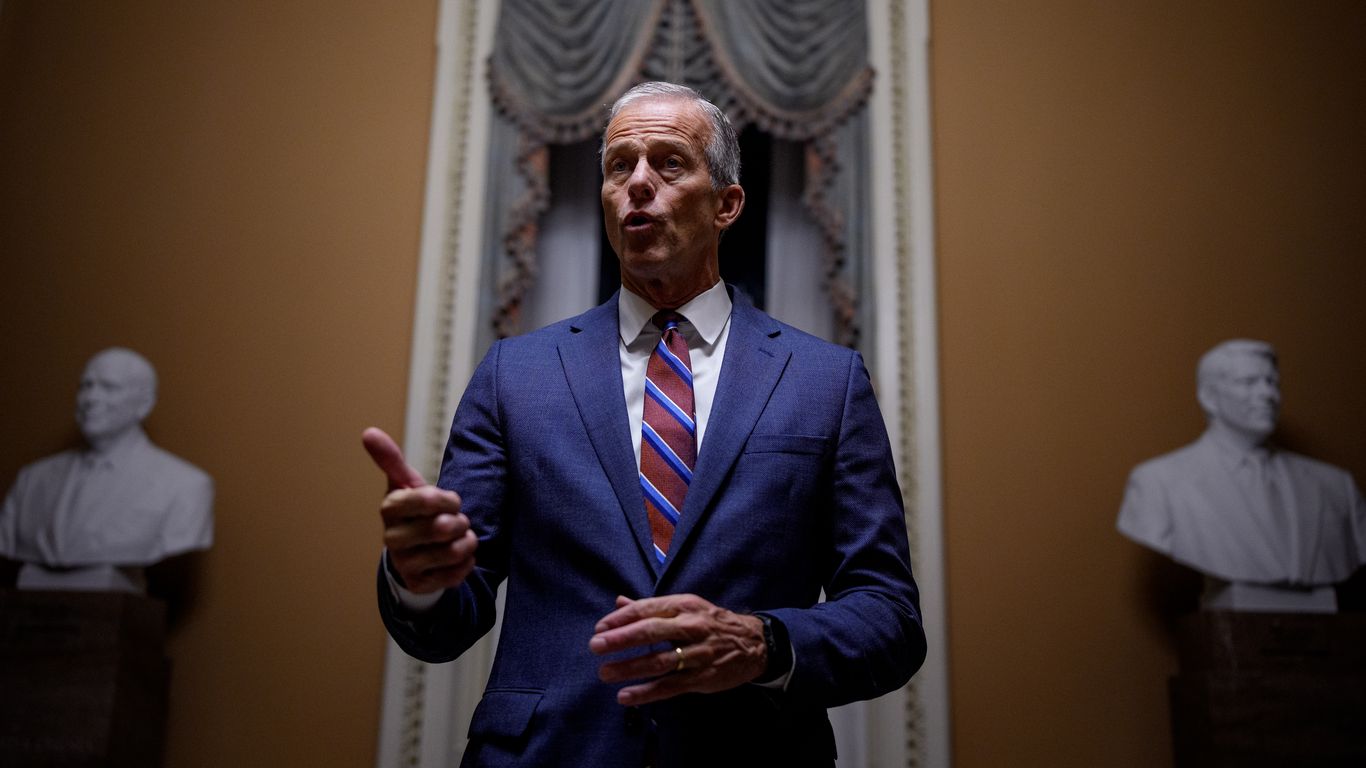
"Yes, but: While the Senate could give bipartisanship a try, prospects for a deal are even dimmer in the House and the White House, where President Trump has been advocating his own proposal to send money directly to consumers. What to watch: Most Senate Republicans have been adamant that any deal to extend the tax credits will need to be short-term and require "reforms.""
"Income caps: Conservative Sen. Roger Marshall (R-Kansas) told Axios he could see himself supporting a deal if an income cap was placed back on the enhanced subsidies. Sen. Jeanne Shaheen (D-N.H.) has said such a change is reasonable. Fraud prevention: Republicans have raised concerns about $0 premium plans, which they say allow fraudsters to sign people up without their knowledge, costing the government more money. One idea being floated is a low-cost premium, such as $10. Hyde amendment: "We're not doing something without the Hyde amendment attached," Sen. Katie Britt (R-Ala.) told reporters last week, an argument many GOPers agree with. The hot topic of abortion has the potential to derail any bipartisan compromise."
Senators from both parties are cautiously optimistic that a bipartisan deal to extend enhanced ACA tax credits is possible, but significant political headwinds remain. Early bipartisan and bicameral negotiations have focused on the expiring pandemic-era tax credits and preparations for a Senate Finance Committee hearing on health care costs. The House and the White House present obstacles, with President Trump promoting a proposal to send money directly to consumers. Most Senate Republicans insist on a short-term extension paired with reforms, including reinstating income caps, addressing fraud associated with $0 premium plans, and attaching the Hyde amendment. Senate Finance Committee leadership and HELP members are expected to lead talks.
Read at Axios
Unable to calculate read time
Collection
[
|
...
]